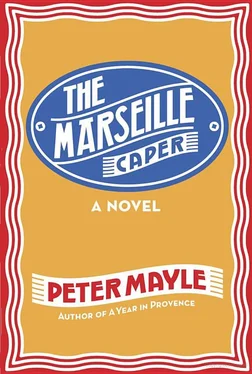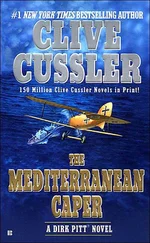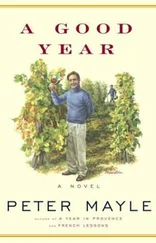Peter Mayle - The Marseille Caper
Здесь есть возможность читать онлайн «Peter Mayle - The Marseille Caper» весь текст электронной книги совершенно бесплатно (целиком полную версию без сокращений). В некоторых случаях можно слушать аудио, скачать через торрент в формате fb2 и присутствует краткое содержание. Жанр: Криминальный детектив, на английском языке. Описание произведения, (предисловие) а так же отзывы посетителей доступны на портале библиотеки ЛибКат.
- Название:The Marseille Caper
- Автор:
- Жанр:
- Год:неизвестен
- ISBN:нет данных
- Рейтинг книги:5 / 5. Голосов: 1
-
Избранное:Добавить в избранное
- Отзывы:
-
Ваша оценка:
- 100
- 1
- 2
- 3
- 4
- 5
The Marseille Caper: краткое содержание, описание и аннотация
Предлагаем к чтению аннотацию, описание, краткое содержание или предисловие (зависит от того, что написал сам автор книги «The Marseille Caper»). Если вы не нашли необходимую информацию о книге — напишите в комментариях, мы постараемся отыскать её.
The Marseille Caper — читать онлайн бесплатно полную книгу (весь текст) целиком
Ниже представлен текст книги, разбитый по страницам. Система сохранения места последней прочитанной страницы, позволяет с удобством читать онлайн бесплатно книгу «The Marseille Caper», без необходимости каждый раз заново искать на чём Вы остановились. Поставьте закладку, и сможете в любой момент перейти на страницу, на которой закончили чтение.
Интервал:
Закладка:
“You know,” he said, “you’re fluent in Spanish. You’d pick up French very fast.”
Elena gave him a sideways look. “Is this leading somewhere?”
Sam smiled, but didn’t answer. Ever since their last explosive breakup and reconciliation, each of them had been careful to avoid talking about the future. Although Elena spent most nights with Sam at the Chateau Marmont, she still kept her apartment, her job, and her independence. At the moment this suited her, but for how much longer?
“Well, you know me, Sam. Always open to an interesting offer.” She fluttered her eyelashes at him, then realized that the fluttering was in vain, as she was wearing Hollywood-size sunglasses.
Sam fished in his pocket for his phone. “Do you want to say hello to your favorite journalist? I thought we might have dinner with him tonight.”
Philippe Davin had been one of the most pleasant surprises of Sam’s previous trip to Marseille. A senior journalist for La Provence , the self-styled bible of Provencal news, Philippe had taken Sam under his well-informed wing in exchange for exclusive rights to any story that might develop. Better still, he had acted as driver of the getaway vehicle-an elderly plumber’s van-when Sam had removed the wine from Reboul’s cellar. To complete the assignment, Philippe had gone to Los Angeles to interview the legal owner of those bottles, Danny Roth, and it was then that he had met Elena.
To Sam’s relief, the two of them had taken to one another instantly. Philippe scampered around Elena like a large, undisciplined puppy, calling her La Bomba Latina and keeping her amused with extravagant compliments and some woefully bad attempts at Spanish. In return, she was happy to give him what she called L.A. 101, a basic guide to the city’s habits and diversions, and she found plenty to enjoy in his reactions. He loved the Lakers game they went to, but was completely bewildered by American football. Puzzled by the unnaturally placid behavior of Los Angeles drivers, stunned by the prices of modest wooden houses in Malibu, appreciative of the seemingly endless parade of young blondes, impressed by Californian wines, amazed at the agility of superannuated surfers-he was fascinated by it all. He suffered only two disappointments: there was no sign of former governor Schwarzenegger on Muscle Beach, and a visit to Starbucks passed without seeing anyone draw a gun. But otherwise the trip had been a great success, and he had made Elena promise to come to Marseille so that he could return the favor.
“Philippe? It’s Sam. I’m here in town for a few days.” He winced, and held the phone away from his ear to lessen the volume of Philippe’s enthusiastic response.
“Listen-I’ll tell you all about it when I see you. How about dinner tonight? Great. You choose somewhere and I’ll call you back later. Meanwhile, I have one of your admirers here.”
He passed the phone to Elena. There was a second explosion of joy from Philippe, followed by heated expressions of devotion that brought a blush to Elena’s cheek. “Philippe,” she said at last, cutting him off, “you are so bad. See you tonight. Can’t wait.”
They were dropping down toward Cassis now, passing some of the fastidiously maintained vineyards that produced the white wine considered by the gourmets of Marseille to be the only proper accompaniment for a bouillabaisse . Needless to say, the Marseillais had their own highly exaggerated account of how the wines of Cassis came into being, as Olivier explained.
In effect, so the story went, the vineyards were established by Le Bon Dieu. He came down from heaven one day and by chance saw a family working on the rocky slopes above Cassis. It was hard, backbreaking work, and nothing seemed to be growing. This made God very sad, and as He saw how the family suffered, He shed a tear. Miraculously, the tear fell on a struggling vine, which promptly started to flourish before giving birth to a wonderful-some would say divine-wine with a delicate tint of the palest green. The Provencal poet Frederic Mistral found time between stanzas to enjoy the odd glass, and claimed to detect hints of heather, rosemary, and myrtle.
“We’ll try a bottle with lunch,” Sam said to Elena, “and you can amaze me with the sensitivity of your palate and the delicacy of your powers of description.”
Normally, Elena never allowed sarcasm to pass unpunished, but this time she was far too busy taking in the view. Cassis is thought by many to be the prettiest spot on the coast. Apart from its vineyards, it has everything: a medieval citadel, cliffs, beaches, a charming port lined with cafes and restaurants, even a casino where the Marseillais go to lose their shirts.
Olivier dropped them off and pointed them in the right direction for the port. He, too, had a lunch date, with a girl from the village, and when he wished them bon appetit , he hoped they wouldn’t hurry back. He had his mind on other things.
The port of Cassis, subject of a million postcards and the victim of innumerable bad amateur artists, is almost too picturesque to be true. It is small-a five-minute stroll takes you from one end to the other-and you are likely to see the occasional character, dressed in peaked cap and sleeveless vest, who might have escaped from one of Marcel Pagnol’s books. Fishermen squat in their boats, scissors flashing in the sun, as they open sea urchins and suck out the nectar, middle-aged men with flamboyant moustaches sit in cafes plying young blond women with coupes of champagne, the small, brightly painted ferries come and go between the port and the narrow rocky inlets the locals call calanques , the air is clean and salty, and the sun casts a benevolent glow over it all. Work and the other harsh realities of life seem a million miles away.
Elena and Sam found a cafe table with an uninterrupted view of the passing parade. This, as Elena noticed with interest, was divided into two distinct groups that could be identified by what they were wearing. Tourists were dressed for high summer, even though it was only spring: women in flowing caftans, sandals, white sundresses, the odd cartwheel straw hat; men in T-shirts and rumpled shorts festooned with multiple bulging pockets (or, even worse, abbreviated camouflage-print trousers that ended six inches above the ankle). The local inhabitants, who clearly didn’t trust the weather, were protected from possible snowstorms by sweaters or scarves, boots for the ladies, and leather jackets for the men. It was as though the passers-by were living in two different climates.
“My father likes to hunt,” said Elena, “and he gets really mad if he sees deer or wild boar when he’s left his rifle at home. ‘Look at that,’ he always says. ‘The things you see when you haven’t got your gun.’ Well, now I know how he feels.” She nodded in the direction of the quay, where a woman with unnaturally bright red hair was posing by a bollard while her companion fussed with his camera. The woman was well into her forties. She was wearing the shortest of shorts and the highest of high heels, and her bare legs had the pallor of flesh that had spent the winter under a stone. Nevertheless, she quite obviously had a high opinion of her appearance, flouncing around the bollard, tossing her radioactive curls, and renewing her lip gloss between each shot.
“When French women get it wrong they really get it wrong,” Elena muttered, with considerable satisfaction.
They left the cafe and made their way through the slow drift of people until they came to the blue awning and flowered terrace that Sam remembered from his first visit to Cassis. “This is Chez Nino,” he said. “Terrific fish and a view of the port. Wines from up there in the hills. You’ll love it.”
Читать дальшеИнтервал:
Закладка:
Похожие книги на «The Marseille Caper»
Представляем Вашему вниманию похожие книги на «The Marseille Caper» списком для выбора. Мы отобрали схожую по названию и смыслу литературу в надежде предоставить читателям больше вариантов отыскать новые, интересные, ещё непрочитанные произведения.
Обсуждение, отзывы о книге «The Marseille Caper» и просто собственные мнения читателей. Оставьте ваши комментарии, напишите, что Вы думаете о произведении, его смысле или главных героях. Укажите что конкретно понравилось, а что нет, и почему Вы так считаете.











